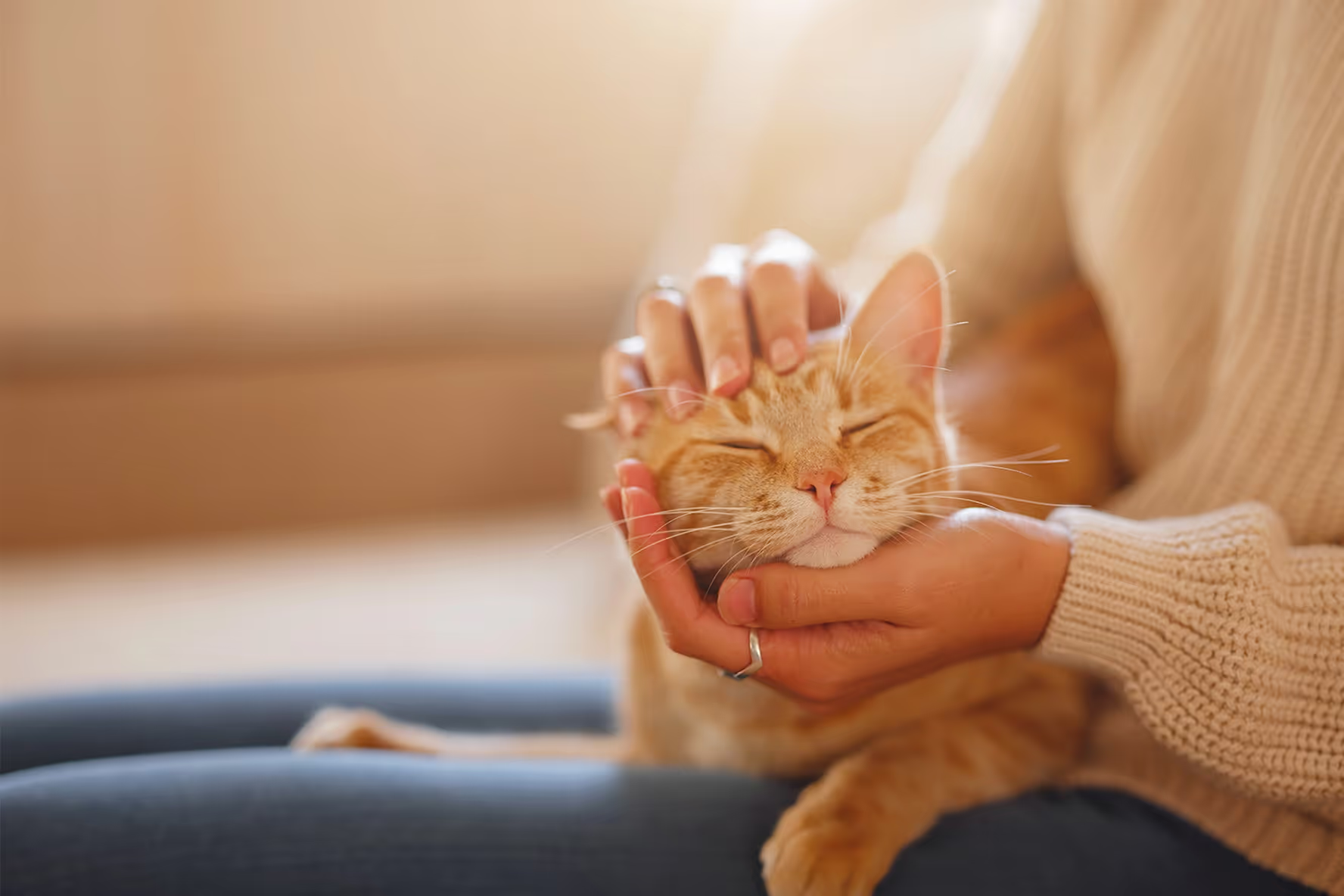
Ensuring the health and well-being of your cat is one of the most important responsibilities of being a pet parent. Just like humans, cats have specific nutritional needs that change as they grow from playful kittens into mature adults and then into their senior years. Proper nutrition is the cornerstone of your cat’s overall health, influencing everything from their energy levels to their immune system.
As your cat ages, their body undergoes various changes that require different nutrients to support optimal health. Kittens need nutrients that support rapid growth and development, while adult cats benefit from a balanced diet that maintains their energy and immune system. Senior cats often require additional support for joint health, kidney function, and a slower metabolism.
Supplements can play a major part in addressing these changing nutritional needs. By providing targeted support at each life stage, supplements can help enhance your cat’s quality of life, prevent common health issues, and ensure they remain happy and healthy throughout their lives.
Cat’s Stages of Life and Different Supplements
Just like with people, a cat’s body has many different needs as they grow and change with age. While some supplements may be beneficial to cats at any stage in their life, others are more specific to certain times in their growing process.
Supplements for Kittens (0-12 months)
During their first year of life, kittens experience rapid growth and development, requiring a nutrient-rich diet to support their physical and cognitive progress. Proper nutrition is crucial for building a strong foundation for lifelong health.
One of the most important nutrients for kittens is DHA, an omega-3 fatty acid that plays a vital role in brain and vision development. Ensuring that your kitten receives adequate DHA can help promote healthy cognitive functions and sharp eyesight as they mature. You need to be careful how much DHA is given because this can cause bleeding disorders in cats. Check with your veterinarian before giving this supplement.
In addition to DHA, probiotics are beneficial for kittens' digestive health. A kitten’s digestive system is still developing, and probiotics can help establish a healthy balance of gut bacteria, reducing the risk of digestive upsets and promoting better nutrient absorption. This is especially important during the weaning phase when kittens transition from their mother’s milk to solid food.5
Calcium and phosphorus also make a huge difference for kittens, as they support the development of strong bones and teeth. These minerals work together to ensure proper skeletal growth, which is particularly important during this rapid growth phase. A deficiency in these nutrients can lead to weak bones and developmental issues.2
Incorporating these supplements into your kitten’s diet can provide targeted support during this critical stage of growth. But be sure to always consult with a veterinarian to ensure your kitten's diet is balanced and that supplements are used appropriately to complement their nutritional needs.
Supplements for Adult Cats (1-7 years)
As cats transition into adulthood, their nutritional needs shift from growth to maintaining overall health and liveliness. Adult cats, typically between 1 and 7 years old, require a balanced diet to support their immune system, digestion, and energy levels. While a high-quality diet forms the foundation of their health, certain supplements can offer additional benefits.
Taurine is an essential amino acid for adult cats, playing a crucial role in heart and eye health. When an amino acid is essential, it means that the animal is unable to produce it on their own and it needs to be consumed, so it's important to ensure they receive enough through their diet or supplementation. Adequate taurine intake helps prevent heart conditions like dilated cardiomyopathy and supports healthy vision.6
Antioxidants, such as Vitamin E, are another key supplement for adult cats. They help combat oxidative stress, which can weaken the immune system and accelerate aging. By incorporating antioxidants into your cat’s diet, you can support their immune function and overall well-being.1
For particularly active cats, joint health can become a concern even in adulthood. Supplements like glucosamine can help maintain healthy cartilage and joint function, preventing stiffness and supporting mobility. This is especially important for cats who are highly active or have a history of joint issues.1
Incorporating these supplements into your adult cat’s routine can help maintain their health and quality of life. As always, consult with your veterinarian to tailor supplement choices to your cat’s specific needs and lifestyle.
Senior Cats (7+ Years)
As cats enter their senior years, typically around age 7 and older, their bodies undergo significant changes that require special nutritional attention. A slower metabolism and reduced activity levels mean they may need fewer calories, but more targeted nutrients to support their aging bodies. Senior cats are also at an increased risk of developing chronic conditions such as arthritis and kidney disease, making it an important practice to adjust their diet and supplement regimen accordingly.
Joint supplements, including glucosamine and chondroitin, are highly recommended for senior cats. These supplements help maintain joint health, reduce inflammation, and relieve the stiffness and discomfort associated with arthritis, allowing your cat to stay mobile and comfortable as they age.3
Omega-3 fatty acids are another valuable addition to a senior cat’s diet. Known for their anti-inflammatory properties, omega-3s can help manage chronic conditions such as arthritis and support overall health, including heart and kidney function.1,3
For cats at risk of or already experiencing kidney issues, kidney support supplements can be beneficial. These often include omega-6 fatty acids and specific amino acids that help support kidney function and slow the progression of kidney disease. Omega fatty acid supplements can cause diarrhea and clotting disorders, so it is important to give the proper amount. Talk to your veterinarian prior to starting these supplements.3
Lastly, probiotics play a vital role in maintaining gut health in senior cats. A healthy gut is crucial for nutrient absorption and overall immune function, especially as the digestive system becomes less efficient with age.
Consult with your veterinarian to create a tailored supplement plan that meets your senior cat’s specific needs, helping them enjoy their golden years with optimal health.
Supplements for Special Considerations
Overweight or Obese Cats:
For heavier cats, weight management supplements like L-carnitine can be helpful. L-carnitine aids in fat metabolism, helping cats lose weight more effectively while maintaining muscle mass. It's crucial to combine these supplements with a balanced, calorie-controlled diet and regular exercise to achieve healthy weight loss. Never begin including a weight loss supplement in your cat’s diet without consulting your veterinarian.7
Cats with Allergies:
Cats with allergies can benefit from omega-3 fatty acids, which support skin and coat health and reduce inflammation associated with allergic reactions. Hypoallergenic supplements can also help minimize allergic responses by avoiding common allergens and promoting skin barrier integrity. Consult your vet to choose the right products for your cat’s specific allergies.3
Cats with Dental Issues:
For cats with dental issues, oral health supplements are key. Enzyme-based supplements can help break down plaque and tartar, while probiotics promote a healthy oral microbiome, reducing bad breath and gum disease. These supplements can complement regular dental care, such as brushing and professional cleanings, to maintain your cat’s oral health.
How to Choose the Right Supplement for Your Cat’s Needs
Every cat is one of a kind. Choosing the right supplements for your cat is crucial to ensuring their safety and health benefits. The first step is to consult with your veterinarian before introducing any new supplement. Your vet can provide tailored advice based on your cat’s specific health needs, age, and any pre-existing conditions.
When selecting supplements, prioritize quality and safety. Look for products from reputable brands that use high-quality, natural ingredients and have undergone third-party testing. Avoid supplements with unnecessary fillers, artificial additives, or vague labeling. Supplements are not regulated by the FDA so what is actually in the bottle may be different than what is on the label.
Proper dosage is also key to maximizing the benefits while avoiding potential risks. Always follow the dosage instructions provided by the manufacturer or your vet. Start with the recommended dose and monitor your cat for any adverse reactions. Administering supplements can be done by mixing them into your cat’s food, offering them as treats, or using capsules designed for easy swallowing.
ImpriMed is a precision veterinary medicine company that helps cats and dogs get the best treatment possible for lymphoma. Learn more about what we do here.
References:
- https://www.petmd.com/cat/nutrition/what-are-cat-supplements-how-do-they-work
- https://resources.integricare.ca/blog/kitten-supplement
- https://www.onehealth.org/blog/what-are-the-best-vitamins-for-cats-do-they-even-need-them
- https://www.newsweek.com/doctors-weigh-whether-cats-need-supplements-1777450
- https://www.veterinary-practice.com/article/dha-supplementation
- https://vcahospitals.com/know-your-pet/taurine-in-cats
- https://vcahospitals.com/know-your-pet/supplements---weight-loss


